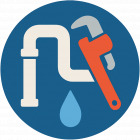DIY Drain Cleaning Safely: Step-by-Step for Clogged Drains
A clogged drain is one of those household nuisances that pops up at the worst possible time. With a little care and the right technique you can often clear a sink, shower, or kitchen drain without calling a professional. Below is a practical, safety first guide to DIY drain cleaning that respects your plumbing and keeps you out of harm’s way.
Tools & supplies you’ll want nearby
- plunger (cup plunger for sinks, flange plunger for toilets)
- plumbing snake or hand auger
- Rubber gloves, safety goggles
- Bucket, old towels
- Baking soda and white vinegar, or a biodegradable enzymatic cleaner
- Adjustable wrench (for removing trap)
Quick safety notes
Always wear gloves and goggles, especially if you’ll be working under the sink. Never mix chemical drain cleaners with other chemicals; the fumes and reactions can be dangerous. If you smell sewage, or water is backing up into multiple fixtures, stop and call an emergency plumber right away.
Step by step: clear a typical sink or shower drain
- Remove visible debris. Clear hair, gunk, or food scraps from the stopper and drain mouth. This simple move often resolves the issue.
- Try the plunger next. Plug overflow holes with a rag, add a little water to create a seal, then plunge with steady pressure for 20-30 seconds. If you feel water rush, success.
- Use a plumbing snake for deeper clogs. Feed the auger gently into the drain, rotate to catch the obstruction, then pull it out. Repeat until the line is free.
- Clean the P-trap if needed. Place a bucket under the trap, loosen the slip nuts with a wrench, and remove the trap to clear trapped debris. Reassemble carefully to avoid leaks.
- Natural flush to finish. Pour 1/2 cup baking soda into the drain, follow with 1 cup vinegar, cover for 10 minutes, then flush with hot water. This helps remove grease and residue without harsh chemicals.
When DIY is not enough
If clogs recur rapidly, multiple drains are affected, or sewage odors persist, you’re likely facing a deeper problem: mainline blockage, tree root intrusion, or compromised plumbing. At that point contact local plumbers or a reputable plumbing company that offers leak detection and emergency plumbing services. Persistent issues may also coincide with other symptoms like a water heater leaking; professionals can diagnose whether unrelated repairs such as water heater repair or replacement are necessary.
Final tips
Keep hair traps in showers, avoid pouring grease down the kitchen sink, and schedule routine maintenance with trusted plumbing services to prevent surprises. Affordable plumbers can save you money in the long run by addressing small signs before they escalate.
A little patience and the right tools will handle most household clogs. If you feel unsure or the job becomes messy and complicated, calling a licensed plumber is the sensible choice, your home’s plumbing system is worth protecting.
